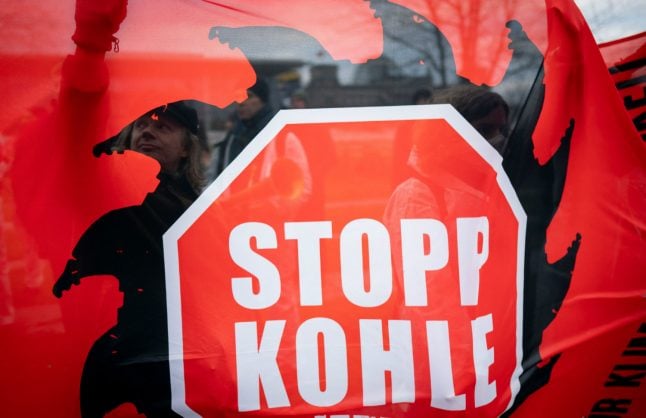The 202-page draft, under the clunky German title of “Kohleverstromungsbeendigungsgesetz” (KVBG) lines up an inching exit from coal by 2038 at the latest.
By that date, all coal-fired power plants and coal mines in Germany should be inactive.
Outside Chancellor Angela Merkel's office, marchers brandished signs reading “Shut off the coal plants NOW” and “Smash (power company) RWE”.
READ ALSO: Germany should phase out coal mining by 2038, says commission
In a slight concession to pressure from the streets, notably the “Fridays for Future” youth movement, the exit timetable could be stepped up to 2035 based on reviews planned for 2026 and 2029.
“What the government is doing is setting in motion a huge and fundamental transformation in our energy supply,” Merkel's spokesman Steffen Seibert told reporters in Berlin.
That was true “even if some elements of this law are of course debated in the public sphere and criticised,” he added.
Activists and campaign groups such as Greenpeace say the planned law falls far short of what is needed for Germany to fulfil its climate promises.
“We're in the middle of a climate crisis, and it's unjustifiable for the coal plants to keep warming the Earth for another 18 years,” Greenpeace energy sector expert Lisa Göldner said.
“This draft law disdains the hundreds of thousands of voices of young people” who have demonstrated for swift climate action, added Quang Paasch of the Fridays for Future movement.




 Please whitelist us to continue reading.
Please whitelist us to continue reading.
Member comments